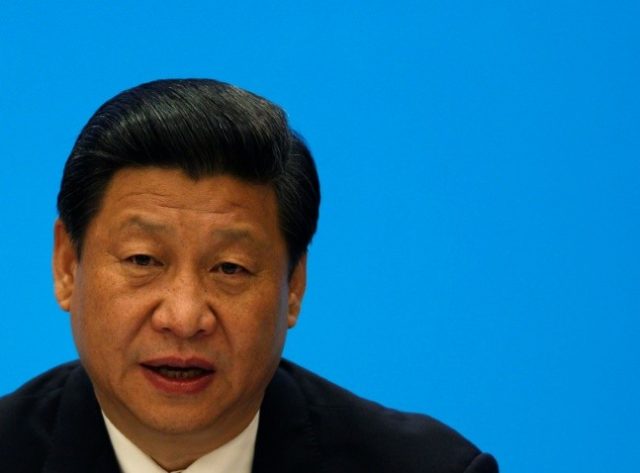At the Boao Forum for Asia’s annual conference in the southern Chinese province of Hainan, Chinese President Xi Jinping promoted globalism as the key to mutual prosperity among all nations.
“We should actively adapt ourselves to globalization rather than halt our steps because of temporary difficulties or problems,” Xi said in a meeting with Dutch Prime Minister Mark Rutte. “We should stick to an open development concept and make economic globalization more open, inclusive, and balanced so that its benefits are shared by all.”
The South China Morning Post interpreted Xi’s address to the Boao Forum on Tuesday as a series of veiled swipes at U.S. President Donald Trump, although Xi did not mention Trump by name. Mixed in with the barbs were reassuring promises that China will begin a “new phase of opening up” by easing restrictions on foreign firms and lowering tariffs. He mentioned the insurance, financial, and automotive sectors as areas where foreign market access would be improved.
“China relied in the past on creating favourable policies for itself,” Xi conceded. “We will have to rely more on improving our investment environment, we will increase our alignment with international rules, and our intellectual property protection. China’s door will not be closed, and will only be opened up even wider.”
“Opening up is a strategic development for China. The high-quality development of China’s economy can only be achieved with greater openness,” he said.
Xi positioned himself as a champion of globalism in contrast to the “cold war and zero-sum mentality” held by certain other world leaders he did not name.
“Those that reject innovation will be left behind and be assigned to the dustbin of history. Human history shows that openness leads to progress, while seclusion leaves one behind,” he declared.
Xi talked up China’s recent economic achievements and insisted his country has “lived up to its responsibility as a major country,” with every intention of continuing to “build world peace and to contribute to world stability and uphold the international order.”
He made a point of denying that China seeks to control developing countries by indebting them to China through its massive “One Belt, One Road” infrastructure project.
“China has no geopolitical calculations, seeks no exclusionary blocs and imposes no business deals on others,” he insisted.
CNBC notes that Xi promised to enforce intellectual property rights more vigorously in China, which would address a major criticism leveled by the United States if he follows through, especially if he ends China’s practice of demanding technology tributes from foreign companies seeking access to its rapidly growing markets.
On the other hand, Xi’s speech did not address another major concern: Beijing’s habit of requiring foreign companies to accept Chinese “joint venture partners” when they establish operations in China.
CNBC’s analysis includes a good deal of skepticism that Xi will carry out game-changing reforms, suspecting instead that his remarks were intended to alternately appease and tweak the Trump administration. One notable exception when assessing Xi’s sincerity is China’s genuine appetite for a dominant position in the electric vehicle market. Both CNBC and the South China Morning Post agreed that the Tesla electric vehicle company could be one of the biggest “winners” from Chinese globalist reforms.
“Xi did not address core themes in China’s ongoing economic planning, including the Made in China 2025 initiative, which will make delivering on the promises of increasing imports more difficult. And the gesture toward reducing tariffs didn’t come cost-free: Xi clearly signaled that he expected Western countries to allow Chinese investment unimpeded access to sensitive high technology sectors,” the Diplomat judged.
“People will say about the Boao speech: ‘Show me.’ We heard this in Davos last year,” a skeptical Joerg Wuttke, formerly president of the European Chamber of Commerce in Beijing, told the Straits Times (ST). Less cynical observers quoted by the ST speculated that Xi seeks to take advantage of apprehension over President Trump’s trade policies to position China as the new guarantor of global economic stability.
As Xi was delivering his speech to the Boao Forum, China filed a complaint with the World Trade Organization over President Trump’s increased tariffs on steel and aluminum, claiming the tariffs violate international trade rules.
“The United States buys little Chinese steel and aluminum following earlier tariff hikes meant to offset what Washington says are improper subsidies to producers. But economists said Beijing responded in order to show it would defend itself,” CNBC reported on Tuesday.

COMMENTS
Please let us know if you're having issues with commenting.